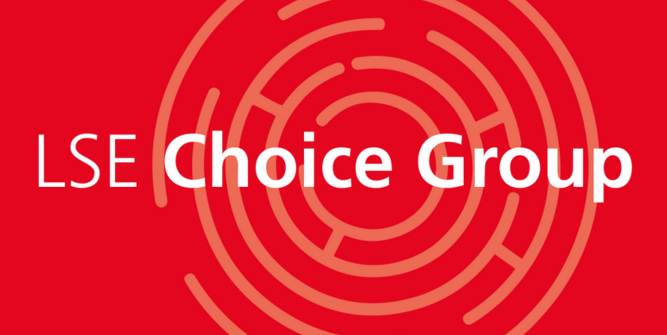Event Categories: BSPS Choice Group Conjectures and Refutations Popper Seminar Sigma Club

- This event has passed.
Choice Group Seminar by Cristian Larroulet Philippi (University of Cambridge): ‘Credences, values, and real-world policymaking: Assessing the Bayesian picture of scientific advice’
1 May 2024, 4:30 pm – 6:00 pm

Abstract: The argument from inductive risk (AIR) is commonly understood to imply that scientific advice necessarily involves non-epistemic values. Richard Jeffrey (1956) famously articulated not only an internal critique to AIR, but also (though more tentatively than current proponents) an alternative picture of scientific advice, which we call “the Bayesian picture of scientific advice”. The Bayesian picture contends that binary cognitive attitudes towards hypotheses—e.g., belief/disbelief, acceptance—have no place in science, and therefore no place in the repertoire of scientific experts: scientists ought only to communicate their subjective probabilities in hypotheses. Moreover, the picture claims, in restricting scientific advice to the communication of subjective probabilities, the political division of labour at the science-policy interface is upheld: scientists bring the epistemic input; policy-makers bring the evaluative judgments. Despite many objections, the Bayesian picture is alive and well (e.g., Henschen 2021; Cassini 2021; Hatchwell and Papineau forthcoming). Instead of asking whether the Bayesian response succeeds in blocking the AIR – the current focus of the literature – we aim to assess the Bayesian picture of scientific advice as a whole. In this talk we focus largely on two interventions. First, without challenging the desirability of the political division of labour at the science-policy interface, we argue that communicating credences does not deliver that prized division of labour—the idea that such a prize is secured in the Bayesian picture is an artifact of the idealizations behind the debate around the AIR. Basically: scientists’ role in policy advice goes well beyond reporting credences (or outright beliefs for that matter) for a few hypotheses previously specified by policy makers. Scientists are necessarily involved in the construction of policy problems. This, we claim, is easy to see when looking at well-studied cases of scientific advice such as large-scale environmental assessments—we focus on the IPCC reports in the talk—but the point generalizes. Secondly, we focus on how the core proposal of the Bayesian picture—to report subjective probabilities—fares in real-world policy making. Looking at the evolving practice of the IPCC (and similar institutions), it is fair to say that the Bayesian proposal appears radically revisionary. In this context, our second intervention is a plea for clarification from proponents of the Bayesian picture: namely, for a specification of which probabilities scientists are meant to be reporting to policymakers in the first place. Given that the Bayesian picture is offered not as a thesis in formal epistemology, but as a normative proposal to guide real-world scientific advisors, abstract talk of “credences” won’t do—the Bayesian’s burden is to specify how their proposal should be operationalised to yield justifiable numbers (by the Bayesian’s own lights) in an advisory context. Running through various operationalizations—scientists’ degrees of beliefs as introspected by them, scientists’ degrees of beliefs as measured by their actions, and the (probabilistic) outputs of scientific models—we find the Bayesian’s burden to be a rather heavy one.
Cristian Larroulet Philippi is a Junior Research Fellow at Gonville & Caius College at the University of Cambridge.
This event will take place in person on LSE’s campus. However, those unable to attend in person will have the option of taking part online.
To join online just follow these instructions:
- Download Zoom
- Zoom link for this for this meeting: https://lse.zoom.us/j/6613924533
Please note that these events are routinely recorded, with the edited footage being made publicly available on our website and YouTube channel. We will only record the audio, the slides and the speaker and will not include the Q&A section. However, any question asked during the talk itself will feature in the final edit.

